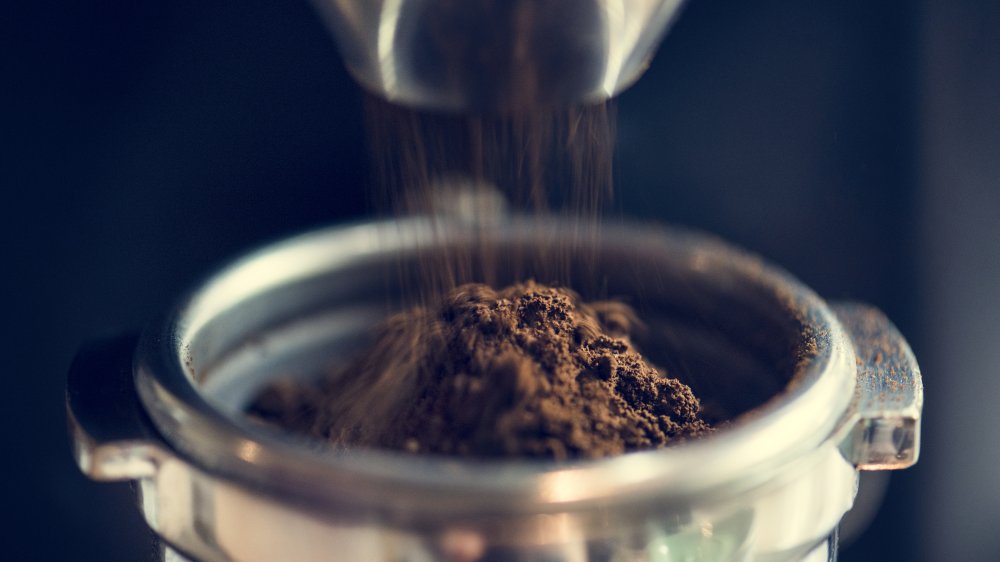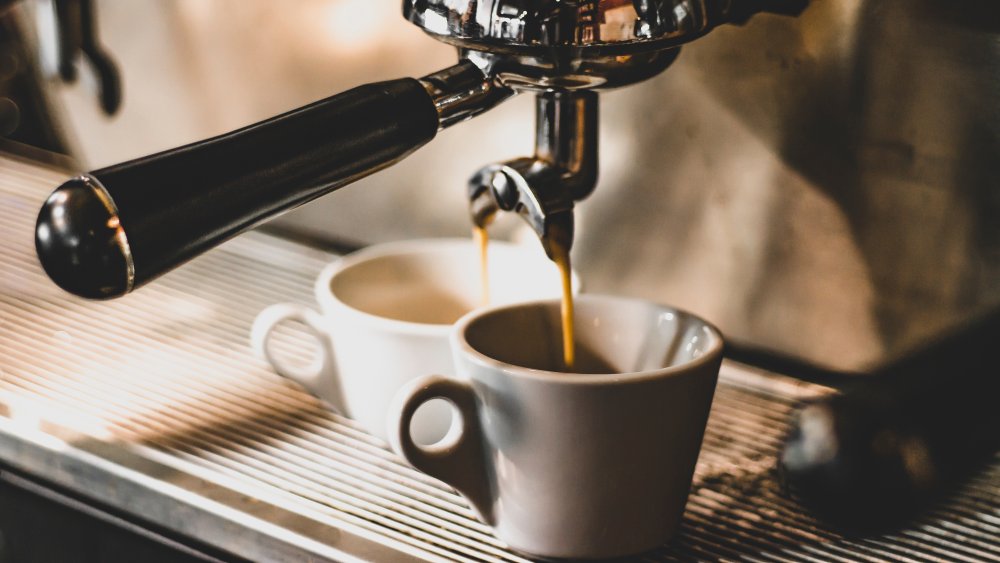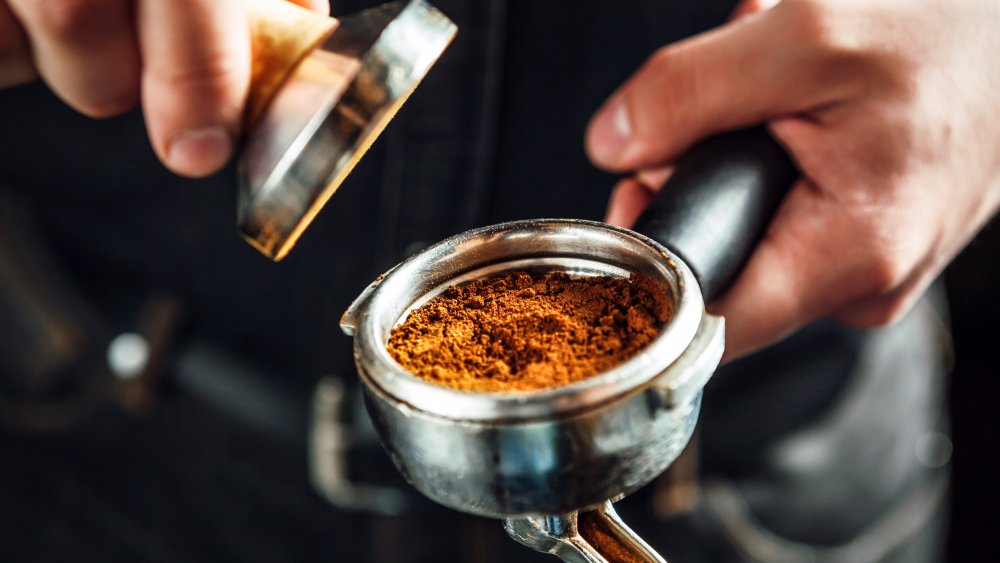The Mistake You're Making When Brewing Coffee
Coffee aficionados know the home-brewed kind is never as good as the variety made lovingly by a barista (and not nearly as artistically pleasing, either). In spite of how many commercials are out there proclaiming instant to be just as good, no discerning coffee drinker is going to believe it. If you know coffee, you know how it should be done. Still, there are times when you need that caffeine hit and brewing a cup at home is the only option.
It might seem like the easiest thing in the world to do, but there are several reasons why home-made coffee tends to fall flat, and they have nothing to do with how fancy your brewer is or whether you ordered the beans direct from the grower. Although it might never be as good as the kind you get in your favorite shop, there are certain things you can do to ensure your at-home coffee hits the spot.
Temperature is everything when brewing coffee
First off, water temperature affects coffee more than we probably realize. As the National Coffee Association notes, "Your brewer should maintain a water temperature between 195 to 205 degrees Fahrenheit for optimal extraction." Essentially, if the water isn't hot enough, or if it's too hot, the coffee won't taste right. Cold water won't elicit strong coffee, while overheated water will rob the coffee of its taste.
Likewise, ensure the cup you're pouring the coffee into is hot, too, because, as Business Insider notes, putting hot liquid into a cold vessel will cool it down before you've had a chance to enjoy it. Instead, warm the cup up with some hot water while you're brewing. It's equally important to drink coffee from a sturdy mug, because this, too, will retain the temperature for longer than a delicate tea cup.
Brewing coffee is all about the best ingredients
When making coffee at home, grounds are, obviously, a massively important element to the whole exercise. Market Watch warns against using beans that have been left out. Using pre-ground beans isn't a good idea either, as Business Insider warns, because once they're ground, their flavors start to be released. The longer you wait to use them, the less flavorful the beans will be. Ideally, use beans that have been roasted over the preceding three weeks (check the roast date to be sure).
The weirdest but arguably most essential element to a good cup of at-home coffee, however, is the water. Aside from ensuring the temperature is correct, Market Watch advises against using tap water. Craig Conner, owner of Pablo's Coffee in Denver, explains that, "Filtered water will lead to brighter, more delicate flavors in your coffee that are flattened out by the minerals in non-filtered water." Put simply, the best water makes the best coffee.


